Religion
/Health
Judge rules in Colorado church's favor in fight with town over shelter for homeless families in parking lot
DENVER — Castle Rock’s attempts to stop a church from housing homeless families in vehicles in its parking lot is a violation of the church’s practice of religious freedom, a federal court has ruled.
U.S. District Judge Daniel Domenico issued a preliminary injunction late last week that stops the Douglas County town from using its land ...Read more
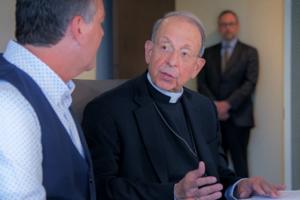
Baltimore archdiocese bankruptcy nears critical mediation phase following last-minute deal with insurers
BALTIMORE — The Archdiocese of Baltimore’s bankruptcy case moved closer to the critical mediation phase Monday, as attorneys for the Catholic Church, its insurance carriers and a committee of sex abuse survivors reached a tentative agreement on the terms for upcoming negotiations.
The agreement is tentative because the lawyers still need ...Read more
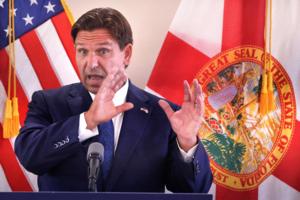
As critics decry religion in classrooms, some fear how far Florida will go
Oklahoma is mandating Bible lessons in public schools. Louisiana is requiring display of the 10 commandments in classrooms.
As the national debate churns over the role of religion in public schools, Florida, too, stands near the center of the storm.
Its law to permit chaplains in classrooms, which took effect July 1, has gained wide attention ...Read more
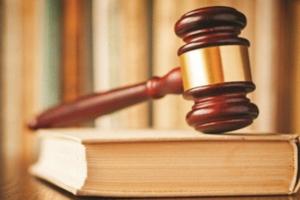
New sex abuse allegations surface against ex-KCK priest who did prison time years ago
KANSAS CITY, Kan. — New substantiated sexual abuse allegations have surfaced against a former priest in the Archdiocese of Kansas City in Kansas who served prison time after being convicted in 2002 of indecent liberties with a child, church officials say.
“With deep sorrow for the suffering of victims and survivors of abuse, the Archdiocese...Read more
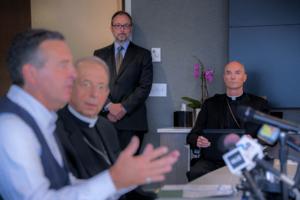
Baltimore archbishop, chair of abuse survivors committee strike unified tone on bankruptcy case
BALTIMORE — Baltimore Archbishop William Lori struck a unified tone with the chair of the committee representing sex abuse victims in the Catholic Church’s bankruptcy case at a news conference Monday, as both men acknowledged the number of survivors who filed claims is not yet known.
Lori and Paul Jan Zdunek, chair of the creditor’s ...Read more
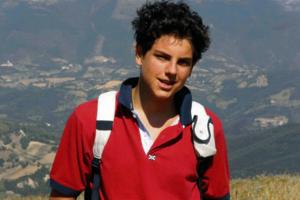
Carlo Acutis, 'God's influencer,' to be first millennial Catholic saint
In the Catholic faith, sainthood is reserved for those who have lived a life of heroic virtues, acted as a martyr or taken part in miracles. The designation typically comes after the person has been dead for decades, even hundreds of years.
That changed last week, when Pope Francis recognized the first saint of the millennial generation in the ...Read more
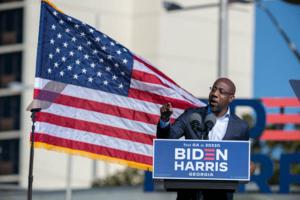
Warnock in Sunday sermon warns of kings in wake of U.S. Supreme Court ruling
During his Sunday sermon at Ebenezer Baptist Church, U.S. Sen. Raphael Warnock spoke out against the U.S. Supreme Court ruling about presidential immunity, saying the court is “mired in corruption” and encouraged his flock to pray, organize and vote.
“I came to warn you we are in dangerous territory,” Warnock said. “If ever we needed ...Read more
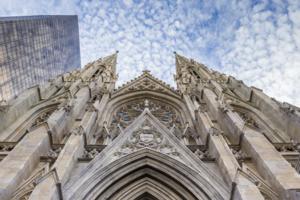
As the Catholic Church and its insurer fight over paying abuse victims, a new group sparks questions
As the Archdiocese of New York and its insurance company, Chubb, battle over who is responsible for millions in potential payouts to survivors of clergy sexual abuse, a new group has entered the picture.
Announcing its presence in November with a full page ad in The New York Times, the Coalition for Just and Compassionate Compensation, which ...Read more
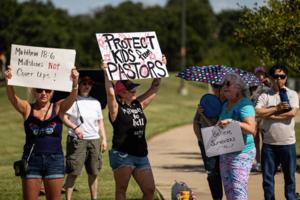
'Even the largest churches can fall': Will Texas' Gateway Church survive the Robert Morris sex abuse scandal?
FORT WORTH, Texas — Southlake’s Gateway Church is reeling from the shocking child sex abuse allegations against its founder Robert Morris, prompting questions of how one of the country’s largest churches will weather the scandal.
Morris resigned from the church last week after allegations surfaced that he sexually abused a 12-year-old ...Read more
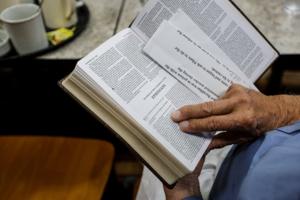
They found religion, decent burgers, and lasting friendships at a North Jersey truck stop
COLUMBIA, N.J. — Somewhere in this random, run-of-the-mill truck stop full of things truckers need, like CB radios and corned beef hash, and stuff no one needs, like dragon sculptures or New Jersey-themed shot glasses, a local tanker driver found something he wasn’t looking for: God.
Mike Eurich was so sure that a higher power touched him ...Read more
St. Louis archdiocese releases long-awaited report on Catholic slaveholding
ST. LOUIS — Louis William DuBourg was just a baby in 1767 when his father, a ship captain and merchant, embarked on a journey from West Africa to the Caribbean with 270 enslaved people aboard. Only 157 of them made it across the Atlantic alive.
The younger DuBourg was also bold. He grew up to be a famous Roman Catholic priest, who, as the ...Read more
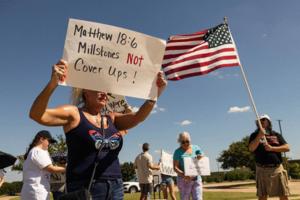
More abuse claims surface at Gateway Church protest. They don't involve Robert Morris
On June 15, Amy Smith had the police called on her as she stood outside Gateway Church in Southlake, protesting the sex abuse scandal involving the church’s founder and then-senior Pastor Robert Morris.
A week later — with Morris no longer the pastor after confessing to molesting a girl in Oklahoma starting when she was 12 years old in the ...Read more
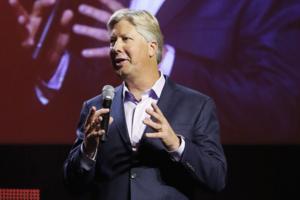
'I'm so sorry.' Gateway Church holds first services since founding pastor's resignation
Southlake’s Gateway church conducted its first weekend of services since Robert Morris, the founder and senior pastor resigned after confessing to molesting a child in the 1980s, starting when the girl was 12.
The megachurch’s main Southlake campus was full on Saturday night and there were protesters outside; Sunday was a different story.
...Read more
Woman sues Catholic order in Delaware for child sex abuse on Maryland Eastern Shore
BALTIMORE — A woman is suing the Oblates of St. Francis de Sales, a Catholic order based in Delaware, for sexual abuse she says she suffered as a young girl at the hands of a priest on Maryland’s Eastern Shore.
Joyce Harper, 74, who now lives in Florida, alleges in a lawsuit filed Wednesday that Oblate priest George Mahoney, who has since ...Read more
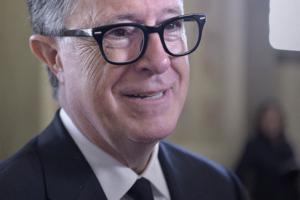
Whoopi Goldberg, Jimmy Fallon, Stephen Colbert among comedians to meet Pope Francis at the Vatican
Whoopi Goldberg, Jimmy Fallon and Stephen Colbert were among the many comedians from around the world who visited the Vatican on Friday morning at the behest of Pope Francis.
More than 100 humorists hailing from 15 countries were invited to meet the pontiff for a meeting organized to “establish a link” between the entertainers and the ...Read more
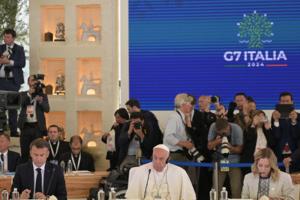
As Pope makes G-7 debut, a spat unfolds over LGBTQ rights
Pope Francis made his debut at the Group of Seven summit, landing in a white helicopter and rolling into a room of world leaders to deliver a warning about artificial intelligence being “fascinating and terrible.”
Anticipation of the leader of the Catholic church had already infused an air of religiosity into a gathering that is typically ...Read more
As Pope makes G-7 debut, abortion vanishes from communique
Pope Francis landed in a white helicopter on Friday at the annual Group of Seven summit — the first ever pontiff to attend such an event.
Anticipation of the leader of the Catholic church had already infused an air of religiosity into a gathering that is typically concerned with geopolitics. Behind the scenes, Italy was ruffling feathers by ...Read more
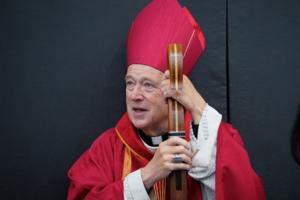
Catholic Diocese of San Diego will seek bankruptcy protection from hundreds of sex-abuse claims
SAN DIEGO — The Roman Catholic Diocese of San Diego announced Thursday that it plans to return to U.S. bankruptcy court to help manage its response to hundreds of lawsuits filed by people who say they were sexually assaulted by Catholic priests when they were young.
It is the second time San Diego church officials have gone to bankruptcy ...Read more
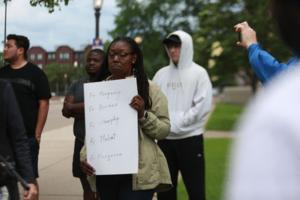
Victims group says 5 credibly accused priests are missing from Twin Cities archdiocese public list
ST. PAUL, Minn. — Five former priests who have been deemed “credibly accused” abusers by church officials and who previously worked in Minnesota aren’t listed on the Archdiocese of St. Paul and Minneapolis’ public list, clergy abuse victims said Wednesday.
That needs to change, said organizers with the Survivor Network of those Abused...Read more
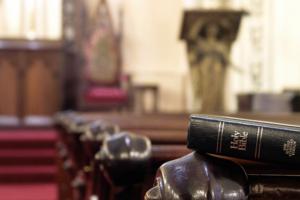
Southern Baptists reject constitutional ban on women in pastoral roles
A day after the Southern Baptist Convention expelled a Virginia church for affirming women in pastoral roles, the nation’s largest Protestant denomination voted down a resolution to add an amendment banning the roles in its constitution.
The amendment failed to meet the two-thirds threshold necessary for adoption, a vote that surprised many ...Read more
Popular Stories
- Judge rules in Colorado church's favor in fight with town over shelter for homeless families in parking lot
- As critics decry religion in classrooms, some fear how far Florida will go
- Baltimore archdiocese bankruptcy nears critical mediation phase following last-minute deal with insurers
- New sex abuse allegations surface against ex-KCK priest who did prison time years ago
- California bans public funding for religious schools. With the courts' help, these families want to change that.





